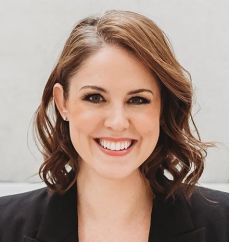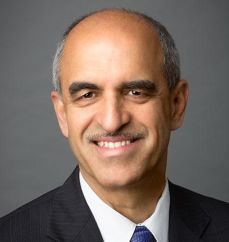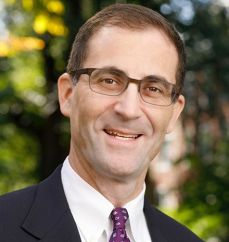Global Colloquium on Participant-Centered Learning
- Dates: 21–26 JUL 2024
- Format: In-Person Learning takes place on the HBS campus or a designated location.
- Location: HBS Campus
- Fee: $7,750
- 21–26 JUL 2024 — On Campus Program (HBS Campus)
- Early 2025 — Case Writing Workshop (Location TBD)
- 21–26 JUL 2024 — On Campus Program (HBS Campus)
- Early 2025 — Case Writing Workshop (Location TBD)
The program fee covers registration, program materials, accommodations, and meals.
Application Due: 31 MAR 2024
Please note this is an invitation-only program with select partner institutions.
Summary
The age-old dilemma for academia—how best to teach—really is about how best to learn. To produce the innovative, inspired, and visionary leaders that institutions need today, business schools must rethink the learning process and their management education curricula, while retaining their distinctive methods and traditions. This two-session colloquium seeks to improve the learning model by building a global community of management educators who are committed to innovative teaching and course design.
Please note that this program is open only to educators who have been nominated by a participating institution.
-
Summary
-
The age-old dilemma for academia—how best to teach—really is about how best to learn. To produce the innovative, inspired, and visionary leaders that institutions need today, business schools must rethink the learning process and their management education curricula, while retaining their distinctive methods and traditions. This two-session colloquium seeks to improve the learning model by building a global community of management educators who are committed to innovative teaching and course design.
Please note that this program is open only to educators who have been nominated by a participating institution.
DetailsExpand AllCollapse All
Employ more effective teaching methodsEmploy more effective teaching methods
- Incorporate participant-centered learning into traditional teaching methods
- Gain strategies for teaching the case method
- Adopt innovative teaching tools and techniques
- Connect with students more effectively
Design more relevant and impactful curricula, courses, and materialsDesign more relevant and impactful curricula, courses, and materials
- Improve course development and case writing to foster learning that is directly applicable to participants' challenges at work
- Drive innovation across the business curriculum based on your school's particular needs
Expand your personal and professional networkExpand your personal and professional network
- Extend your network by living and working with accomplished executives from various backgrounds, industries, and countries across the globe
- Build relationships with a diverse group of peers who can provide wide-ranging insights into your business challenges and career decisions
Employ more effective teaching methods
- Incorporate participant-centered learning into traditional teaching methods
- Gain strategies for teaching the case method
- Adopt innovative teaching tools and techniques
- Connect with students more effectively
Design more relevant and impactful curricula, courses, and materials
- Improve course development and case writing to foster learning that is directly applicable to participants' challenges at work
- Drive innovation across the business curriculum based on your school's particular needs
Expand your personal and professional network
- Extend your network by living and working with accomplished executives from various backgrounds, industries, and countries across the globe
- Build relationships with a diverse group of peers who can provide wide-ranging insights into your business challenges and career decisions
Who Should Attend
Participating institutions are encouraged to invite full-time, senior business faculty members who:
- Have case teaching, case writing, and industry experience
- Are committed to bringing innovation to their teaching methods and curricula
- Are well positioned to influence instructional development and learning strategies across their institutions
-
Who Should Attend
-
Participating institutions are encouraged to invite full-time, senior business faculty members who:
- Have case teaching, case writing, and industry experience
- Are committed to bringing innovation to their teaching methods and curricula
- Are well positioned to influence instructional development and learning strategies across their institutions
Dive Deeper into the ExperienceSee how exchange with faculty and peers yields new insights into critical business trends.Thrive in a learning environment that welcomes diverse ideas and perspectives.Global perspectives > Leadership growth > Organizational impact.
Learning and Living at HBS
When you participate in an Executive Education program on the HBS campus, you enter an immersive experience where every aspect of the learning model has been carefully designed to facilitate your growth. Your learning will take place on your own, in your living group, and in the larger classroom, driven by the renowned HBS case method.
-
Learning and Living at HBS
-
When you participate in an Executive Education program on the HBS campus, you enter an immersive experience where every aspect of the learning model has been carefully designed to facilitate your growth. Your learning will take place on your own, in your living group, and in the larger classroom, driven by the renowned HBS case method.
Admissions Criteria and Process
To apply, you will submit:
- The application, telling us about your experience, your organization, and your current responsibilities, goals, and challenges
- A letter of reference from the institution's dean
Answering Your Questions
Letter of Reference
Application Submission
Commitment
Fee, Payment, and Cancellations
To apply, you will submit:
- The application, telling us about your experience, your organization, and your current responsibilities, goals, and challenges
- A letter of reference from the institution's dean
Answering Your Questions
Letter of Reference
Application Submission
Commitment
Fee, Payment, and Cancellations
Summary
The Global Colloquium on Participant-Centered Learning comprises two sessions: seven days held on the HBS campus and three days offered at two different locations—the HBS campus and a site outside the United States. For the second session, you may choose the location that best meets your needs.
Focused on fostering your growth as a teacher, course developer, and change agent, this program models and examines the nature of participant-centered learning. Exploring the potential of various teaching methods, case research, curriculum development methodologies, and case writing, this rich learning experience includes faculty presentations, case studies, workshops, simulations, and small-group discussions.
Participants should expect to spend at least 9-12 hours on self-paced case preparation prior to attending the program. Case materials will be made available approximately two weeks prior to program start.
-
Summary
-
The Global Colloquium on Participant-Centered Learning comprises two sessions: seven days held on the HBS campus and three days offered at two different locations—the HBS campus and a site outside the United States. For the second session, you may choose the location that best meets your needs.
Focused on fostering your growth as a teacher, course developer, and change agent, this program models and examines the nature of participant-centered learning. Exploring the potential of various teaching methods, case research, curriculum development methodologies, and case writing, this rich learning experience includes faculty presentations, case studies, workshops, simulations, and small-group discussions.
Participants should expect to spend at least 9-12 hours on self-paced case preparation prior to attending the program. Case materials will be made available approximately two weeks prior to program start.
Key BenefitsExpand AllCollapse All
Principles of practice-based learningPrinciples of practice-based learning
- Exploring how people learn
- Identifying the qualities of strong teachers
- Determining when the case method is and is not appropriate
Your teaching strategy and planYour teaching strategy and plan
- Examining different curriculum development methodologies
- Preparing and executing your teaching strategy
- Developing teaching plans
Effective engagement with learnersEffective engagement with learners
- Defining learning contracts
- Questioning, listening, and offering feedback
- Developing a strong relationship with the class
Research and case writingResearch and case writing
- Practicing case writing and editing
- Conducting field-based research
- Maximizing synergy among research, case writing, and teaching
Innovation and changeInnovation and change
- Learning and developing as leaders and teachers
- Integrating economics, ethics, and the institution
- Introducing participant-centered learning—including strategies, support requirements, and political responses
Principles of practice-based learning
- Exploring how people learn
- Identifying the qualities of strong teachers
- Determining when the case method is and is not appropriate
Your teaching strategy and plan
- Examining different curriculum development methodologies
- Preparing and executing your teaching strategy
- Developing teaching plans
Effective engagement with learners
- Defining learning contracts
- Questioning, listening, and offering feedback
- Developing a strong relationship with the class
Research and case writing
- Practicing case writing and editing
- Conducting field-based research
- Maximizing synergy among research, case writing, and teaching
Innovation and change
- Learning and developing as leaders and teachers
- Integrating economics, ethics, and the institution
- Introducing participant-centered learning—including strategies, support requirements, and political responses
The HBS Advantage
Our Executive Education programs are developed and taught by HBS faculty who are widely recognized as skilled educators, groundbreaking researchers, and award-winning authors. Through their board memberships, consulting, and field-based research, they address the complex challenges facing business leaders across the globe.
Baker Foundation Professor, Sebastian S. Kresge Professor of Marketing, Emeritus
Baker Foundation Professor and Sarofim-Rock Professor of Business Administration, Emerita
O'Brien Associate Professor of Business Administration
C. D. Spangler Professor of Business Administration
George F. Baker Professor of Business Administration
Howard H. Stevenson Professor of Business Administration
Senior Lecturer of Business Administration and Director, C. Roland Christensen Center for Teaching and Learning.
Jesse Philips Professor of Manufacturing
James Dinan and Elizabeth Miller Professor of Business Administration
-
The HBS Advantage
-
Our Executive Education programs are developed and taught by HBS faculty who are widely recognized as skilled educators, groundbreaking researchers, and award-winning authors. Through their board memberships, consulting, and field-based research, they address the complex challenges facing business leaders across the globe.
Faculty ChairBaker Foundation Professor, Sebastian S. Kresge Professor of Marketing, Emeritus
HBS Unit:MarketingFacultyBaker Foundation Professor and Sarofim-Rock Professor of Business Administration, Emerita
HBS Units:Entrepreneurial ManagementGeneral ManagementO'Brien Associate Professor of Business Administration
HBS Unit:Negotiation, Organizations & MarketsC. D. Spangler Professor of Business Administration
HBS Unit:Technology and Operations ManagementGeorge F. Baker Professor of Business Administration
HBS Unit:Accounting and ManagementHoward H. Stevenson Professor of Business Administration
HBS Unit:Entrepreneurial ManagementSenior Lecturer of Business Administration and Director, C. Roland Christensen Center for Teaching and Learning.
Jesse Philips Professor of Manufacturing
HBS Unit:Technology and Operations ManagementJames Dinan and Elizabeth Miller Professor of Business Administration
HBS Unit:Organizational Behavior

































